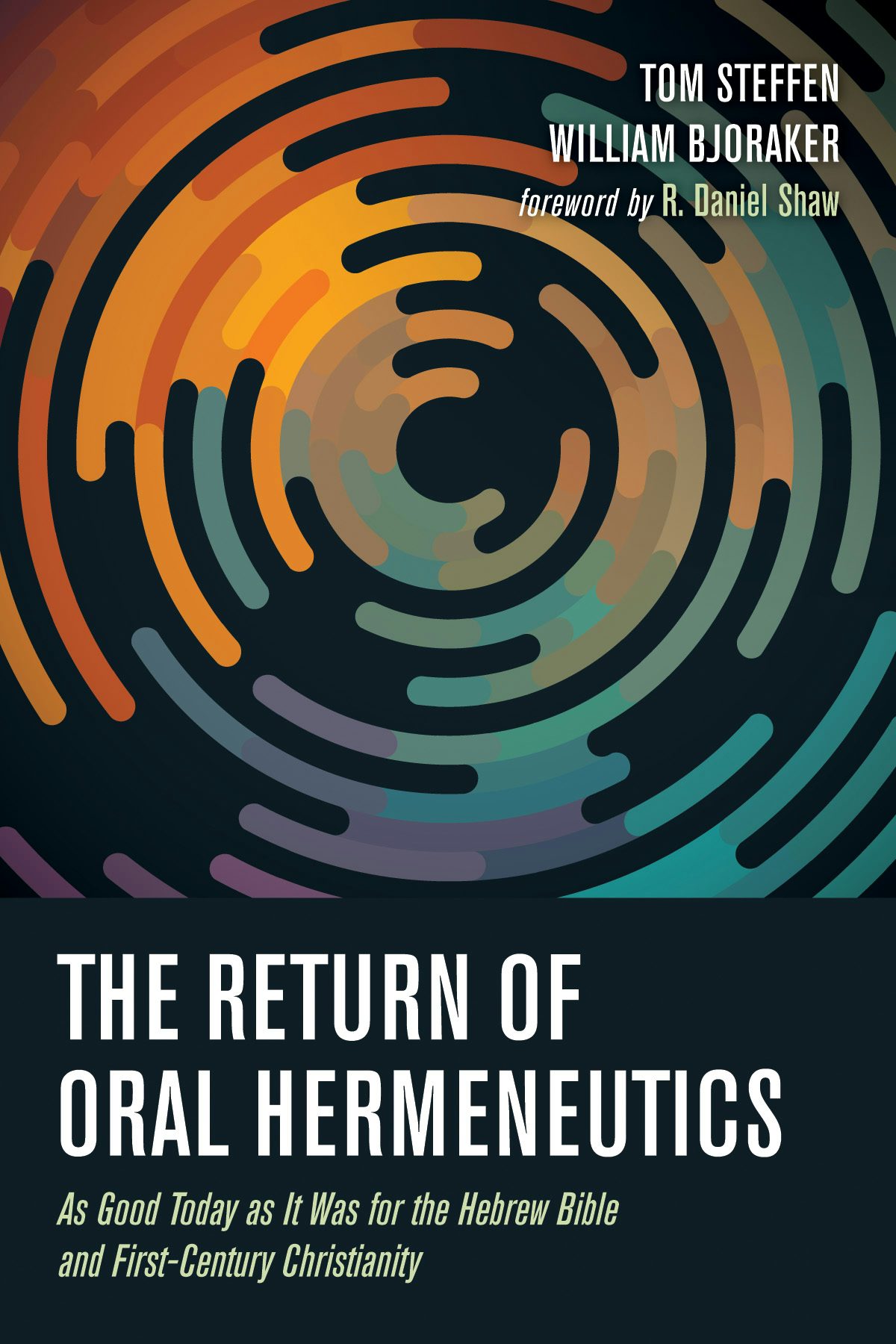As Good Today as It Was for the Hebrew Bible and First-Century Christianity
by Tom Steffen and William Bjoraker
Foreword by R. Daniel Shaw
Have Western exegetes turned an Eastern book into a Western one? Has our fondness for a fixed printed text capable of being analyzed with precision and exactitude blinded us to other hermeneutic possibilities? Does God require all people to be able to analyze grammar to interpret Scripture? Does God assume all people can interpret Scripture through oral means? The authors recognize the effects of centuries of literacy socialization that produced a blind spot in the Western Christian world–the neglect by most in the academies, agencies, and assemblies of the foundational and forceful role orality had on the biblical text and teaching. From the inspired spoken word of the prophets, including Jesus (pre-text), to the elite literate scribes who painstakingly hand-printed the sacred text, to post-text interpretation and teaching, the footprint of orality throughout the entire process is acutely visible to those having the oral-aural influenced eyes of the Mediterranean ancients. Could oral hermeneutics be the “mother of relational theology”?
OralityResources.International is an orality-focused open-access publisher and collection of orality resources.

